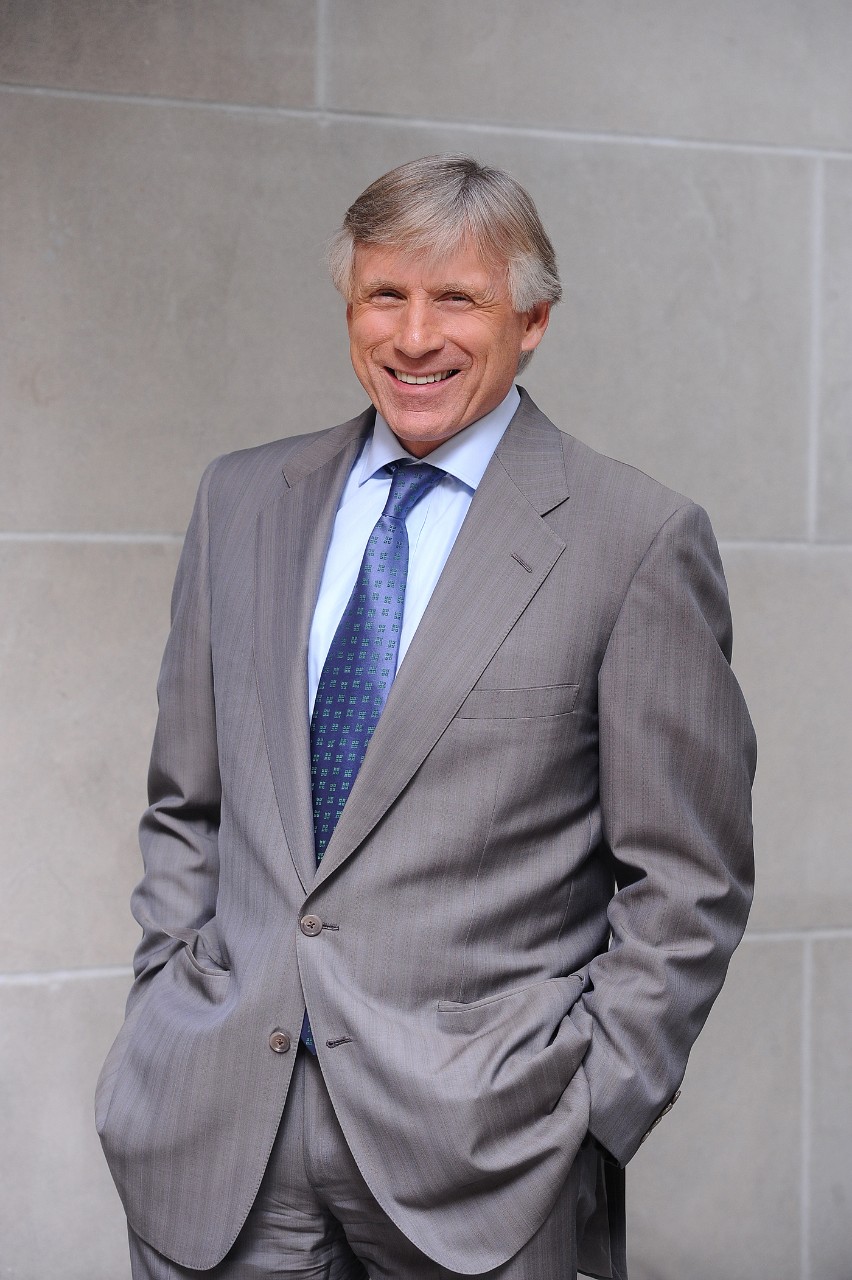Lee C. Bollinger
Lee C. Bollinger, 1946-
Term of Office: 2002-2023
Lee C. Bollinger became Columbia University’s 19th president in 2002 and, at the time he stepped down in 2023, was the longest serving Ivy League president. Under his leadership, Columbia redefined what it means to be a great research university in the 21st century, distinguished by comprehensive academic excellence, an innovative and sustainable approach to global engagement, two of the largest capital campaigns in the history of higher education, and the institution’s most ambitious campus expansion in over a century.
As Columbia’s president, Bollinger conceived and led the University’s most ambitious expansion in over a century with the creation of the Manhattanville campus in West Harlem, the first campus plan in the nation to receive the U.S. Green Building Council’s highest certification for sustainable development. An historic community benefits agreement emerging from the city and state review process for the new campus provides Columbia’s local neighborhoods with decades of investment in the community’s health, education and economic growth. The first two buildings, the Jerome L. Greene Science Center and the Lenfest Center for the Arts, opened in the spring of 2017. The third, The Forum, which hosts conferences, meetings, and symposia, opened in September of 2018. In 2022, Columbia Business School opened its new home, Henry R. Kravis Hall and David Geffen Hall, completing the first phase of campus construction.
Bollinger’s commitment to excellence in architecture is evident across Columbia’s campuses, from Renzo Piano’s master plan for Manhattanville, to the recently opened Roy and Diana Vagelos Education Center at Columbia University Irving Medical Center, designed by Diller Scofidio + Renfro, to Rafael Moneo’s design for the Northwest Corner Building on the historic Morningside campus, to the Campbell Sports Center at Baker Field designed by Steven Holl.
Among Bollinger’s signal achievements at Columbia are the development of a network of nine Columbia Global Centers on four continents and the creation of new venues on the University’s home campus supporting global conversations and scholarship, including the World Leaders Forum and the Committee on Global Thought.
After graduating from the University of Oregon and Columbia Law School, where he was an Articles Editor of Columbia Law Review, Bollinger served as law clerk for Judge Wilfred Feinberg on the United States Court of Appeals for the Second Circuit and for Chief Justice Warren Burger on the United States Supreme Court. He joined the University of Michigan Law School faculty in 1973.
From November 1996 to 2002, Bollinger was president of the University of Michigan, where he also served as a law professor and dean of the law school. As president of the University of Michigan, Bollinger led the school’s landmark civil rights litigation in Grutter v. Bollinger, a Supreme Court decision that for the first time upheld the constitutional right of colleges and universities to engage in affirmative action to advance diversity in higher education.
Upon completing his term as university president, Bollinger remains at Columbia as its first Seth Low Professor of the University, a member of the Columbia Law School faculty, and one of the nation's foremost First Amendment scholars.
